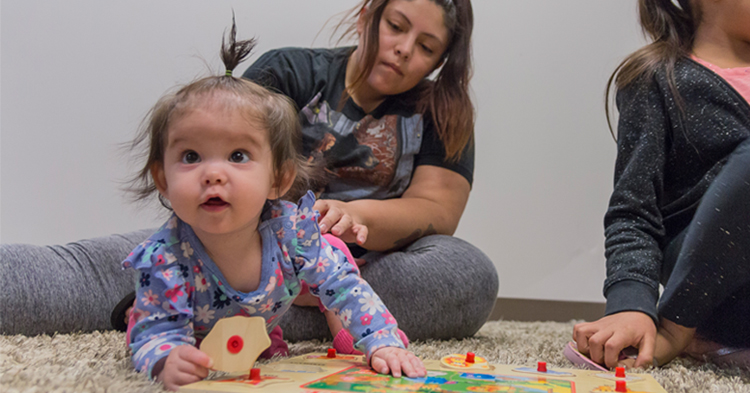Expectant parents in their third trimester are being encouraged to count their baby’s kicks. It could help save their baby’s life.
The Arizona Department of Health Services has partnered with the national organization Count the Kicks to reduce stillbirths across Arizona. Research shows that teaching pregnant women how to monitor fetal movement during the third trimester of pregnancy resulted in a 30% reduction in stillbirth.
“The health of the mom and health of her baby are intrinsically connected,” said Jodi Long, an advisory board member, in a Count the Kicks video. “When one is struggling, there’s a growing chance the other will struggle, too.”
According to the Centers for Disease Control and Prevention, Arizona loses approximately 485 babies to stillbirth each year. Stillbirth, defined as the loss of a pregnancy between 20 and 42 weeks gestation, affects 1 in every 169 pregnancies nationally and is 10 times more common than Sudden Infant Death Syndrome.
Expectant parents can download the free Count the Kicks app to easily record their baby’s movements and notify their health care provider if something changes.
Starting at 28 weeks, expectant parents can track their baby’s movement on the app.
Download from Apple App Store Download from Google Play StoreExpectant parents are asked to do this daily and to pick a time when the baby is active. The instructions are simple: Sit with your feet up and count each movement as one kick, until they reach 10. The app will show you how long it takes to reach 10. Parents are asked to rate the strength of the baby’s movement from 1 to 5, with one being a flutter to 5 being fierce.
By using the app daily, expectant parents will get to know what’s normal for their baby.
If they notice a change in the strength or how long it takes to get to 10, they should contact their healthcare provider.
“There are warning signs, red flags if you will. Ways for expectant parents and doctors to have an early heads up that something might be going wrong in a pregnancy,” Long said. “Babies in the third trimester are just like us. When we’re sick and not feeling well, and want to lie in bed or on the couch, it’s the same thing for babies. If they’re not doing well, their movements will change or become weaker. This is that early red flag and a reason to call the doctor right away.”
Count the Kicks features personal stories from mothers across the country, where speaking up about a change in their baby’s movement helped their baby have a safe arrival and also address pregnancy complications that put their own lives at risk.
“Increased education and awareness around fetal movement monitoring may help to improve birth outcomes, not just for babies, but for moms, too,” Long said.





